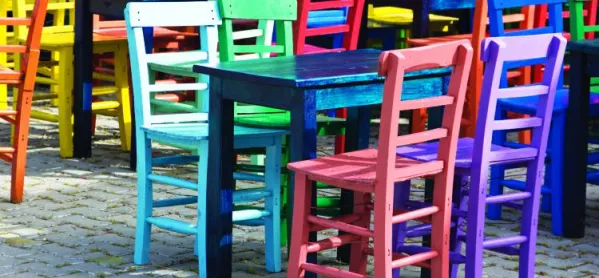Developing skills by learning outside the classroom

Teaching outside the classroom can be a great way of enriching learning and, indeed, is a fundamental part of the curriculum in subjects such as geography. But are we really making the most of the opportunities available to us when it comes to developing young people’s personal, social and emotional skills?
Structured day trips or residential programmes at outdoor centres offer young people the opportunity to take risks, make decisions and show leadership. A report produced by the thinktank Demos in 2015 highlighted the importance of learning outside the classroom, recognising it as a playing a ‘vital role in developing character attributes’. These attributes, sometimes referred to as non-cognitive or soft-skills, have been linked to positive outcomes in later life. The ability to empathise and connect with others leads to better personal and working relationship and gives young people the skills and motivation to play an active role in their communities.
At my own school, we have worked with providers to tailor activities that complement our character and wellbeing programmes, which we view as important in supporting the development of the whole child. Year 12 students embark on a two-day challenge in the Lake District, where teams spend half a day planning routes to take in checkpoints and activities where they can score points.
A group’s success depends on understanding the particular skills of individual members of the team. They are encouraged to take calculated risks. For example, they may choose a physically demanding route to gain a large number of points only to lose them if they don’t finish in the time allowed.
The beauty of the challenge’s design is that any team can win, even if they take the low-lying routes, as long as they plan carefully and understand group dynamics. Perhaps the most important element of the course, however, is making time to engage in meaningful reflection, both during and after the trip. This allows young people to recognise peers as role models, celebrate what is good in themselves - as well as others - and think about how they might have acted differently in particular situations.
It also provides an opportunity for young people to gain a better knowledge of themselves and to learn how to take constructive criticism well. The benefits of taking advice are immediately apparent when it’s raining, you’ve just finished a long hike and the camping stove won’t light. This experience can inform behaviour in school, where the ability to respond positively to feedback is key to developing academic resilience.
It would be difficult (maybe even impossible) to teach these skills in the classroom, yet their importance is undeniable. Developing the confidence to act as an effective member of a team, in whatever role, mindful of the views and feelings of others can only serve young people well in the future.
But it’s not only outward bound courses that can nurture these skills. Visits to heritage sites, museums, galleries and interactive science centres allow pupils to experience rich, immersive learning environments and can bring huge benefits. Research carried out by the University of Leicester noted that pupils felt ‘valued and respected’ after working on museum-based projects, and it’s not difficult to imagine why this might be the case.
Being able to access real objects, learn about them and then talk with authority about what you think and feel is empowering. Children are able to communicate ideas more clearly and speak with confidence.
These visits can also provide opportunities for children to take control of their own learning. I have accompanied our Year 9s on a visit the Imperial War Museum North where, in addition to facilitated classroom sessions, they were asked to explore the museum and complete questions under their own direction. They worked in small groups of their own choosing, and decided how best to complete the activities.
It was interesting to observe how they adopted different approaches. Some worked on tasks together and in order while others split into sub-groups, dividing the work between individuals. Students had a fixed amount of time in which to complete activities and points were awarded for correct answers. All groups had to plan in order to finish and learned much about cooperation and managing relationships, and that it can take time to reach an agreement. Some groups were particularly motivated to finish first, even though there was no additional credit for doing so.
In all cases, it was a valuable lesson in self-control, especially as they were working in such an interesting and stimulating environment, where teacher supervision had been relaxed and there was so much to engage with, including other school groups and the gift shop! Collaborative tasks, therefore, need not be confined to outdoor education centres.
Visits to galleries and museums can also encourage children to reflect on the experiences of others. Our annual visit to the Port Sunlight Museum and Model Village with Year 7 gives children a strong sense of what life was like there in the 1890s compared with other towns and cities in the region. Not only can they view artefacts, they can enter an Edwardian home and walk around in it. Comparing lived experiences in the past informs conversations about contemporary issues and gives children a framework for discussions around empathy.
As teachers, we often feel that we do not have time to engage in learning outside the classroom, or that budgets simply won’t stretch that far, but the truth is such experiences can bring significant benefits to young people.
With creative thinking and careful curriculum planning, activities can be embedded throughout the year to support not only academic learning but the development of personal, social and emotional skills. In this way, young people will surely gain a better understanding of the world and their place within it.
Discover amazing outdoor educational experiences across the UK here.
Heather Tunstall is senior teacher for pastoral curriculum and enrichment and deputy head of sixth form at Bolton School Boys’ Division
